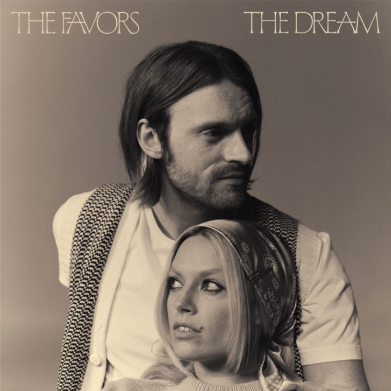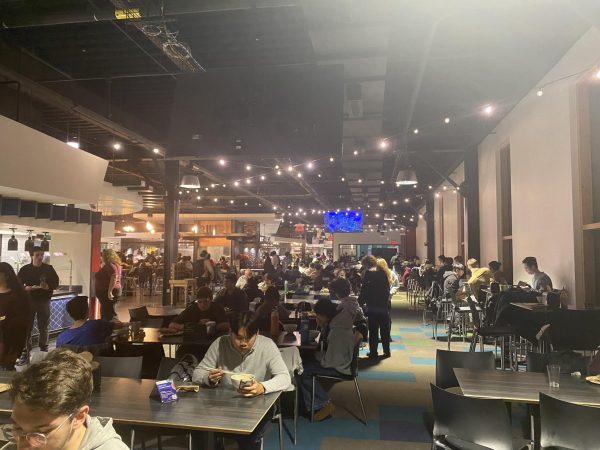Five films to celebrate Hispanic Heritage Month
Appreciating Latinx culture through cinema
Hispanic Heritage Month — which goes from Sept. 15 to Oct. 15 — recognizes the vast contributions from the Hispanic and Latinx communities. Despite being one of the biggest moviegoers in the country, Latinx people continue to be underrepresented and misportrayed in Hollywood.
The National Hispanic Media Coalition (NHMC) reports, “Of more than 11,000 speaking characters surveyed in film and TV, only 5.8 percent were Hispanic or Latino.” And that’s not even considering how many of those characters are blatant stereotypes. Which is why Alex Nogales — the president and CEO of the NHMC — believes increasing Latinx involvement in media is vital. “Until Latinos are given the opportunity to tell our own stories, to write, direct, and act in all film, television, and streaming media produced by Hollywood, we will continue to be stereotyped, talked about, and treated in the worst of ways as we are being treated presently,”explains Nogales. So, here are five must-see Hispanic and Latinx films featuring diversity both in front of and behind the camera.
Ranging from Spain to Brazil, each of these films explore different lives, cultures and genres. Regardless of your level of Spanish (and/or Portuguese), these films are sure to make you laugh, cry and fall in love.
1. “Chico and Rita” (2010)
Country: Cuba
Language: Spanish/English/French
Director(s): Fernando Trueba, Javier Mariscal and Tono Errando
Synopsis: It’s 1948 in Havana, Cuba. Chico (Eman Xor Oña) and Ramón (Mario Guerra) are young piano players struggling to make ends meet. When Ramón arranges a double date for them at a bar, Chico ends up falling in love with the band’s singer, Rita (Limara Meneses). Enchanted with her graceful singing voice, Chico uses his music to win over Rita and the two spend the rest of the night together. Together their love of music takes their relationship to new heights, earning a month’s engagement at a club. But, when Rita gets an offer to pursue a solo career in New York City, Chico storms off into a jealous rage. Even though Rita fights to keep them as a duo, it’s too late. Over the next 60 years, Chico and Rita have an on-again and off-again relationship. Will Chico and Rita ever be together again?
Blending raw emotion with playful animation, “Chico and Rita” is one powerful film. It oozes Latin jazz, and its colorful medium creates a new layer of intimacy between the viewer and the lives of Cubans during the 1940s. Not only does “Chico and Rita” capture the rich Cuban culture as it progresses over time, but it emphasizes the racism and colorism that Cubans with darker skin experience. Something which the Latinx community is known for disregarding. But its ability to give feeling and emotion to its animation that makes “Chico and Rita” so captivating. Animation is a vehicle back in time when Latin jazz ruled the world and love was its most powerful instrument.
2. “City of God” (2002)
Country: Brazil
Language: Portuguese
Director(s): Fernando Meirelles and Kátia Lund
Synopsis: Despite its jumps through time, the film focuses on the violence in Rio de Janeiro created by a gang called the Tender Trio. But when Rocket (Alexandre Rodrigues) — an aspiring photographer — gets caught in the middle of one of the Tender Trio’s wars, he witnesses unimaginable things. As Rocket watches violence consume the other boys like Lil Zé (Leonardo Firmino da Hora), he learns more about his gift for documenting the world around him.
Hollywood is known for its portrayal of Rio de Janeiro as a colorful, exotic and crime-filled playground. But “City of God” explores its darkest corners of gangs, drugs and violence through the eyes of children. This focus on how violence impacts youth and development creates an immersive experience for the audience. The film delicately puts Rio de Janeiro from a different perspective, one that doesn’t exploit, but rather serves as a spotlight.
3. “Biutiful” (2010)
Country: Spain
Language: Spanish/Chinese/Wolof
Director(s): Alejandro González Iñárritu
Synopsis: Uxbal (Javier Bardem) is a single father living in Barcelona with his two children, Ana (Hanaa Bouchaib) and Mateo (Guillermo Estrella). Even though his ex-wife Marambra (Maricel Álvarez) occasionally helps take care of their children, Uxbal doesn’t trust her because she suffers from bipolar disorder, alcoholism and works as a prostitute. After being diagnosed with terminal prostate cancer, Uxbal’s world begins to rapidly crumble around him. With his health quickly deteriorating and desperate to provide for his children, Uxbal has no choice but to sacrifice everything.
While the film does explore the chaos of Uxbal’s life, “Biutiful” also aims to show a different side of Spain. Uxbal’s obstacles reveal the poverty and hardships real Spaniards experience, rather than the glamour sold through Hollywood and travel agencies. This perspective also allows “Biutiful” to highlight various cultures that frequently blend into Uxbal’s life. With raw and powerful cinematography, “Biutiful” is a reflection of a world forced to exist in the shadows.
4. “Instructions Not Included” (2013)
Country: Mexico/United States
Language: English/Spanish
Director(s): Eugenio Deberez
Synopsis: The life of Mexican bachelor Valentín Bravo (Eugenio Deberez) is turned upside down when a former lover leaves him with a baby she claims is his daughter. Valentín rushes to the airport hoping to return the baby to its mother Julie (Jessica Lindsey), but she’s already boarded a plane to Los Angeles. Desperate to maintain his bachelor lifestyle, Valentín travels with the baby, Maggie (Loreto Peralta), across the border in search of Julie. Unable to find her, Valentín literally jumps into a job as a stuntman to provide for Maggie. Over the next six years, Valentín creates a happy and fun life for Maggie. But once Julie returns and tries to be a part of Maggie’s life again, everything changes.
In this Latinx comedy, director Eugenio Deberez manages to capture more than just laughs. He captures a sense of humor and a kind of love that only Latinx people can truly understand. Without giving spoilers, the film does end on a painful note. But Deberez makes it a journey worth taking.
5. “A Fantastic Woman” (2018)
Country: Chile
Language: Spanish
Director(s): Sebastián Lelio
Synopsis: Marina (Daniela Vega) is a young transgender woman who works as a singer and waitress in Santiago, Chile. After recently moving in with her older boyfriend Orlando (Francisco Reyes), the two go out to dinner. Things take a turn when Orlando suddenly complains he doesn’t feel well. As Marina prepares to take him to the hospital, he accidentally falls down a flight of stairs. Marina rushes him to the hospital only to learn that Orlando has died of a brain aneurysm. After his death, Marina begins to meet Orlando’s relatives and quickly learns she has to defend herself both as Orlando’s partner and a trans woman.
The exclusion of trans women in film — specifically black and other women of color — is not a new issue in Hollywood or Latin America. But “A Fantastic Woman” is more than just a film, it’s a living work of art. The medium delicately transforms Marina’s journey as a trans-Latina into a tangible experience. While “A Fantastic Woman” does emphasize Marina’s painful experiences, it also manages to incorporate an overwhelming amount of love. With each movement of the camera, there’s nothing but pure and utter love for Marina.
Email Brianna at brsilva@umass.edu or follow her on Twitter @brisilvv.

Email Brianna at brsilva@umass.edu or follow them on Twitter @brisilvv









